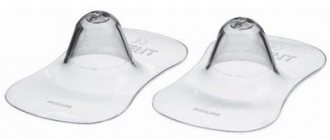How to wake up a baby?
You need to wake up your baby when his sleep is not sound.
Babies' sleep is practically no different from adults' sleep. It can be shallow or deep. The phases that a child experiences are similar to those of an adult. We recommend waking your baby when he is in a state of light sleep. In this case, the likelihood that he will awaken easily and without unnecessary problems increases.
How can you tell if your child is in a state of light sleep?
You can determine that your baby is in a state of shallow sleep by the following features:
- The child constantly moves his lips. Makes body movements similar to those when he sucks the breast.
- The baby involuntarily moves his limbs. Both feet and hands.
- A smile appears on the child's face.
What to do if the child is in a state of deep sleep?
If your child is in a deep sleep, do not wake him up under any circumstances. Do something alternative. Sit next to him. And start monitoring his behavior.
After some time, the sleep phase may change to a shallow one. As a result, the child will show signs of such sleep. And it will be easier for you to wake him up.
It is recommended to wake up the child with light touches
To wake up your baby, you have to touch him regularly. Physical contact wakes up children best. So for example you can:
- Try to remove the child's clothes.
- Raise the baby's blanket a little.
- Stroke the child's hand.
- Stroke your head.
- Stroke your cheeks.
All types of physical contact will have a positive effect on the child. They will make him wake up. And you will feel invigorated.
Removing blankets or clothing from a child is very effective. Because, thanks to the feeling of cold, the baby will be able to wake up quickly. Touching a child is also very effective. Your touch will make him feel calmer. And get ready to drink milk.
You can wake up your baby by taking him out of the crib
Try going to the baby's crib. And then get it out of there. And keep it in the appropriate position (head up) for some time. If the child does not wake up immediately, then, at a minimum, he will quickly enter the shallow sleep phase. And in some cases, he will even have the opportunity to fully wake up.
When you take your child in your arms, there is no need to remain silent. Make different sounds. Talk. Sing. The sounds will help wake up the baby.
If your baby is sleeping in your arms, do the following:
Place him in the position in which he always consumes milk. Then bare your chest. And bring it to the child's mouth.
It is necessary to make sure that milk gets on the baby’s lips. When the child tastes the liquid, it will cheer him up. He will wake up.
Lightly tickle the child
Some children wake up quickly when their parents start tickling them. By the arms or legs. However, this must be done as carefully as possible. And only slightly. So that the child does not experience discomfort when you tickle him.
You can wake up your child in an alternative way. For example, you can simply blow on it. Or touch your cheek.
You can wake up your baby using a cold temperature cloth
When the child feels cold-temperature material on himself, he will immediately perk up. And he will wake up. You need to do the following.
You need to take the fabric. Moisten it with cool water. Then start coating the baby. Various parts of his body. Like the legs, the head, the arms.
Turn on the light in the room where the baby is lying
If the baby is in a room with no light, then try to change the situation. Let in traditional street light. To do this, just open the curtains.
This will cause the baby to wake up quickly. You'll feel great. And at the same moment he will become cheerful.
Start making a little noise where the baby is located
The noise will help wake up the baby. However, it should be minimal. You should increase the noise level in the room, but not too much.
For example, you can sing. Talk to your husband. Or do something else. The main thing is that it makes noise.
Why does a child need to eat food every few hours?
His health depends on how well a child eats. To stay strong, your child must consume milk every two to three hours. When feeding, consider the following:
- Children cope with digesting food in a fairly short time. The baby may become hungry within an hour and a half after the previous feeding.
- You should always monitor whether the child is full. Isn't he hungry? Also, you should remember when he last consumed food. And feed him faster than he himself asks for it.
Required volume
The stomach of a newborn baby can initially hold very little food. At first, 30–60 ml per feeding is enough, but by the time the baby is two months old, he will need 700–940 ml per day and 6–7 meals per day.
Here is an approximate calculation of the amount of formula per feeding for a baby:
| Age: | Amount of formula per feeding: | Feeding frequency: |
| Newborn | 60–90 ml | Every 3–4 hours |
| One month | 120 ml | Every 4 hours |
| Two month | 120 ml | 6–7 feedings per day |
| Four months | 120–180 ml | 6 feedings per day |
| Six months | 180–240 ml | 5 feedings per day |
| One year | 240 ml | 2–3 feedings per day plus baby food |
How to prevent your baby from falling asleep while you feed him?
When you feed a sleepy baby, monitor his condition. Do everything to keep him from falling asleep. To do this, follow the following recommendations.
Keep baby's attention
When you start feeding your baby after waking up, try to capture his attention. And hold until the child is completely fed. To do this you can:
- Laugh.
- Talk to your child.
- Look at him. Make eye contact.
- Lightly tickle him.
And so on. As you feed, you will discover ways to keep your baby's attention.
When you feed your baby, place him in a position that will keep him awake
Keep in mind that putting your baby to your breast immediately after waking up can be dangerous. During this, the child will feel your warmth. The way the heart beats. As a result, it will be very easy for him to fall asleep.
To prevent this from happening, you need to change your baby's position. Place him in such a way that he is not entirely comfortable. And, as a result, it makes it more difficult for him to fall asleep.
If the baby falls asleep during feeding, then move him to the other breast
All babies sometimes fall asleep during feeding. This is fine. If a similar situation happens to you, then simply move the baby to the second breast. Thanks to this movement, you can cheer him up. Make him feel great. And he won't be sleepy anymore.
There is also an alternative option. You can take away the baby's nipple. Take it out of your mouth. Thanks to this, the child will immediately cheer up. And he will want to continue consuming milk.
We also recommend using another option. Just drop some milk on your child's mouth. This method will perfectly invigorate the child.
Give your baby a chance to burp
There is another effective way by which a child can be relieved of drowsiness. Give him the opportunity to sit in a comfortable position. And burp.
When he does this, he will cheer up. He won't want to sleep anymore. And will easily complete the food consumption procedure.
Increase milk flow
Increasing the pressure will have a positive effect on the child's condition. Will force him to consume milk more actively. And, as a result, no sleep.
Increasing the pressure is very simple. To do this, just massage your breasts. And also squeeze it lightly. In the part that is around your nipple.
In this case, you need to act carefully. Overdoing it and giving your child too much flow is also not recommended. This could end negatively. There is a possibility that the child will choke.
The child is with me, often suckles, but constantly cries. He's probably hungry!?
After birth, children do not cry from hunger! They experience childbirth and the postpartum period many times. If during childbirth and in the first days after birth something went beyond the physiological norm, there were interventions in childbirth, stimulation of labor, anesthesia; after birth, the baby suckled little (less than 1 hour) or did not suck at all; then he was taken away from his mother, fed with formula or water, etc., then there are many “reasons” for crying!
Experienced lactation consultants say: “A baby doesn’t always sleep full, and doesn’t always cry hungry.” A bottle of formula will not change the experience after childbirth, but it can change the type of feeding and lead to the baby refusing to breastfeed.
Feeding a newborn: where to start?
For a newborn baby, feeding is the most important process that lays the foundation for future health, guaranteeing active growth and development. That is why parents have to ensure regular meals. What steps should be taken to make feeding as natural and comfortable as possible for both baby and mother?
- The hands and breasts of a nursing mother should be washed with simple laundry soap, bottles and nipples (in the case of artificial feeding) should be disinfected: this will reduce the risk of thrush appearing in the baby's mouth.
- If you feed while lying down, then take care of a fresh diaper on the bed - cleanliness is the key to health.
- A comfortable position will make the whole process easier and more comfortable for both parties. Each mother is free to choose the position independently, taking into account her needs and wishes of the baby. Among the most preferable are the classic options - sitting and lying down (postures for breastfeeding).
- Correct grip of the nipple by the baby guarantees active and productive sucking, which does not cause problems for either mother or baby. If the nipple is not grasped correctly, the baby has difficulty eating, makes extra effort, quickly gets tired and begins to be capricious. In this case, the mother’s breasts suffer even more: cracks are likely to appear, as well as stagnation of milk due to inactive sucking. The basics of putting a baby to the breast should be taught to a young mother in the maternity hospital (by a midwife or doctor), since the success of all breastfeeding (how to breastfeed correctly) depends on the first steps.
- If your baby falls asleep a few minutes after you start feeding, try waking him up to continue eating. If the child immediately falls asleep soundly, then feeding can be postponed.











